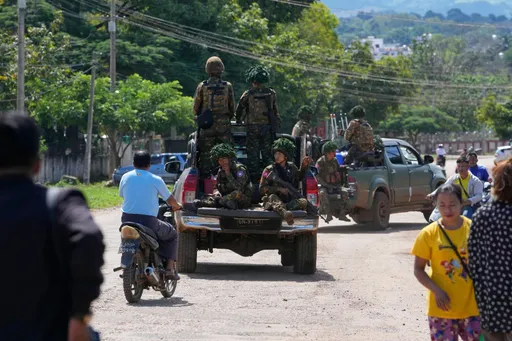The slain Saudi journalist Jamal Khashoggi is in the news again. This time, it is thanks to the bipartisan leaders of the US Senate Intelligence Committee who are up against the acting director of national intelligence Richard Grenell.
The Republican chairman of the Senate Intelligence Committee Richard Burr and the Democratic vice chairman Mark R Warner have sent a letter to Grenell asking him to make public what intelligence officials have only admitted to in classified reports: that the de facto leader of Saudi Arabia Mohammed bin Salman (MBS) is “responsible for the death of Jamal Khashoggi, a Washington Post contributing columnist and regime critic,” the Washington Postreported.
Also in the same vein, the Democratic senator of Oregon Ron Wyden is working on invoking what the Washington Post calls “a rarely used legislative procedure” that would allow the Senate to release the previously classified material if it is considered to be in the public interest.
In February, soon after Grenell took his post, the Office of the Director of National Intelligence (ODNI) sent a report to Congress on the Khashoggi killing.
ODNI refused to release any unclassified findings but added an annexe that was classified which, according to insiders, confirmed what many had already known about the Khashoggi killing: that MBS was directly responsible.
The New York Times said of Grenell’s appointment as the acting director of national intelligence “the least-experienced, most overtly political person ever to occupy the post, which oversees the Central Intelligence Agency, the National Security Agency and 15 other departments.”
Grenell is a Trump loyalist and Trump has all the reason to keep his relations with MBS amicable, which is why the release of an unclassified report on the Khashoggi killing may not be on the cards.
Representative Tom Malinowski, a member of the House Foreign Affairs Committee, believes otherwise. “[The declassification of the Khashoggi killing findings is] highly relevant to decisions we need to make about our relationship with Saudi Arabia — a debate that requires public input,” said the Democrat, adding “Therefore, it should absolutely be declassified.”
Malinowski suggested that the US should sanction Saudi Arabia in light of the information the secretary of state has about serious human rights abuses committed by the country, the Khashoggi case being neither the first nor the last.
“Now that the administration has formally determined and reported to Congress who was likely responsible for this crime, I believe they are obligated to sanction those people under the relevant authorities,” he said.
The gruesome death of Jamal Khashoggi was in the news in June 2019, less than a year after his death.
A report penned by Agnes Callamard, United Nations’ Special Rapporteur on extrajudicial, summary or arbitrary executions, found that “Khashoggi was the victim of a premeditated extrajudicial execution, for which the State of Saudi Arabia is responsible”.
In addition to calling Khashoggi’s killing “premeditated”, the report accuses his killers of acting “under cover of their official status”.
Counting six violations of international law, including the prohibition against arbitrary deprivation of life, the prohibition against enforced disappearance, and the protection of freedom of expression, the report points a finger at MBS, saying there is “credible evidence, warranting further investigation of high-level Saudi officials’ individual liability, including that of the Crown Prince.”
Last year in December, the Khashoggi case made headlines again because Saudi Arabia sentenced five people to death and three more to jail terms totalling 24 years.
And a film about Khashoggi was in the media in February 2020. 'The Dissident', directed by Bryan Fogel and shown at the prestigious Sundance Film Festival, was proving hard to market because distributors were reticent about approaching the subject matter.
Jamal Khashoggi was a Saudi journalist and a Washington Post columnist who was slain in October 2018 inside the Saudi consulate in Istanbul where he had gone to get some documents so he could marry his fiancee, Hatice Cengiz.
It is believed that Khashoggi was first suffocated by a team of Saudi assassins inside the consulate, then dismembered and “disappeared”. His body was never found.























